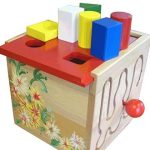June 29, 2020 — Tourism accounts for 20 percent of Croatia’s economy, but nearly all of the government and public’s attention. What about the other industries in the remaining 80 percent?
Croatia’s tourism industry will find it difficult to generate even 30 percent of last year’s revenues. So the country must seek other sources of revenue alongside what citizens working in the EU send back home. Queue the commodities exporters, whose income is from foreign markets.
The nation’s exporters saw revenues fall in the first four months fell by five percent, to HRK 34.4 billion. They’re the sort of numbers Croatia’s tourism industry will struggle to reach despite the government’s and the media’s attention.
During this time, Croatia’s wood, textile and auto parts companies fell off the radar. Apart from being exporters, these are also companies that employ hard-to-employ people and are located in rural areas, so there is no alternative for additional employment.
The Croatian Association of Employers noted that the wood industry realizes over 70 percent of its turnover on the foreign market, with Italy its main partner. Currently, few consumers are considering buying furniture or adapting their residential or business space. They add that even the few goods that could be sold are stuck due to the difficult organization of transport. The association is asking the Government for help in this branch, in which most companies are currently working and in which there are no major layoffs.
The Croatian Chamber of Commerce said the situation in the main markets such as Italy, Germany, Austria, France and China shows visible signs of recovery by receiving orders from existing customers and accelerating shipments, while the furniture market shows signs of recovery as a result.
“However, the only thing that is certain is uncertainty, given that it is a durable good whose purchase is postponed by buyers in times of crisis,” the Chamber of Commerce said. “Pellet producers are witnessing the normalization of demand, after a six-month disturbance in the main market of Italy, where there was a saturation of cheap products originating from Eastern Europe.”
The chamber added that there are still problems with the placement of fresh beech wood on the Egyptian market, where 60 percent of those products usually ship. The market is simply oversaturated.
There is great uncertainty, according to the Croatian Chamber of Commerce, among manufacturers of parts for the automotive industry.
Some companies at the beginning of the crisis closed their plants and sent workers on vacation. Delays in the procurement of raw materials and semi-finished products also created difficulties in business.
The situation in the textile industry in Croatia is also wobbly. The first to be hit by the corona crisis were clothing manufacturers, because, they note from the Croatian Chamber of Commerce, they had difficulties in delivering raw materials.
“Considering that this is a predominantly export branch, export activities have been disabled for a long time,” the Chamber said. “All stores were closed and this also affected a large loss of traffic, especially if they did not have online sales before. All of this has resulted in full warehouses and a shortage or reduction of new orders. Given the difficult situation and the inability of some companies within the textile industry to adapt to the new situation in the short term, this will in the future contribute to significant layoffs and the inability to pay salaries regularly.” The production of protective clothing, which is in great demand in both the domestic and foreign markets, is the only branch that can compensate for significant losses.
President of Croatian Exporters Darinko Bago said that the Government’s measures at the beginning of the crisis significantly helped all companies, including those that export. But elections and tourism have sucked all the attention and energy away from helping exporters at a crucial time, he said.
“We should have sat down and talked about how to proceed,” he said. “Work out a few of the most likely variants and measures for them. Instead, elections began to dominate.”
The shift away created an impression of government success, which Bago denies.
“There’s this impression that there is nothing the state cannot do and there is no reason to worry,” he said. “Of course not. A good part of the exporters were lucky that their partners from, for example, Germany did not cancel their orders. But what will happen from August, will customers need more stock? Supply and sales channels are still threatened.”
He points out that Croatia missed an opportunity to discuss what products we can offer in the new circumstances, because production in Europe is once again becoming an advantage. While Croatia comes up with this topic, he is afraid, its companies will go out of business.









